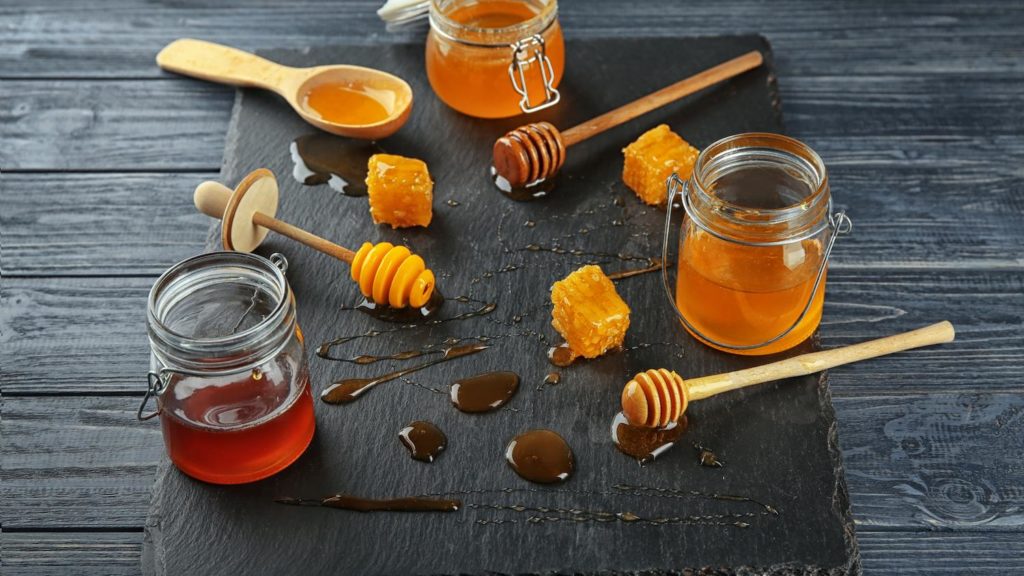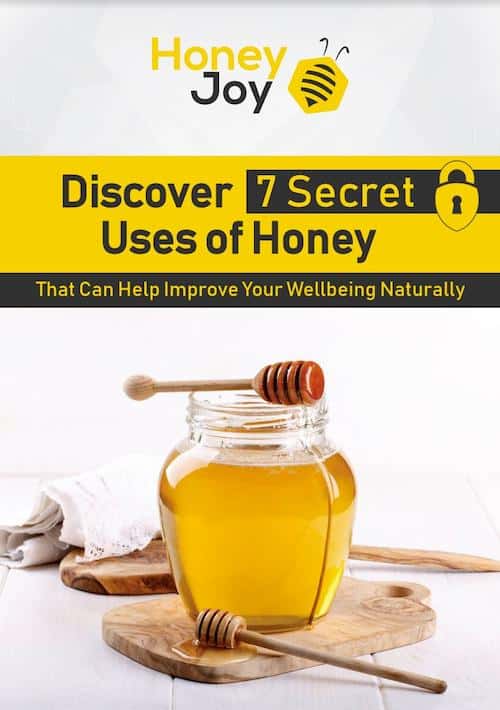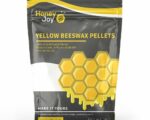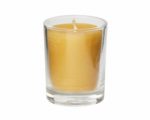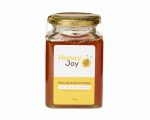You might have heard someone using terms such as raw honey or pure honey or even unfiltered honey, but have you ever wondered what these terms mean? What’s the main difference between them?
How is raw honey different from regular honey? What is raw honey? What is unfiltered honey? What is pure honey and how does it compare to other types of honey? What are the main differences between raw honey and regular honey?
And last, but not least, what are the general health benefits of eating honey?
So, if you want to hear (I mean read) the answers to all of these questions (or are just interested in one of the questions mentioned) you are welcome to continue reading this article.
Sit back, relax and let me take you on a wild ride into an extremely interesting world of honey!
Key Takeaways
- Raw honey is filled with antioxidants.
- Regular honey can sometimes contain added sugars.
- Raw honey has more health benefits than regular honey.
Raw Honey
Before I go into details and start talking about which type of honey is most beneficial to your health, let me first tell you a little about each type of honey I will be mentioning (and comparing) in this article.
Raw honey is the essence of honey as it exists inside a beehive (precisely honeycombs). The only thing that is different (from the honey inside the beehive) is that raw honey is filtered for impurities (such as beeswax and dead bees).
And that’s it.
Unlike other types of honey, raw honey is not pasteurized [1], which in turn makes it richer in amino acids and antioxidants (when compared to other types of honey).
The important thing to note about raw honey (aside from the fact that it’s rich in antioxidants) is that it contains bee pollen. Why is that important you may ask?
Well, there are people who are allergic to bee pollen, and if you are one of them, you should probably stay clear of raw honey (and possibly any other type of honey, depending on the severity of your allergies).
If you are looking to get your hands on some quality, natural raw honey, I want to suggest you check out HoneyJoy shop, as we do have some amazing, natural products.
Pure Honey
The second type of honey we will be talking about is called pure honey. So, what’s it all about?
It’s simple, pure honey means that the jar of honey labelled as such, contains 100% honey without any added sweeteners or chemicals.
That’s really important because some manufacturers often like to add stuff like corn syrup or glucose syrup to their honey jars (mostly to lower the costs of producing honey).
Pure honey is probably much healthier than regular honey (which can hold many artificial ingredients), but ultimately it all depends on the brand of honey you are looking to buy and the process they used to make it.
The term pure honey is too broad as it can relate to many different types of honey and many different ways of making it.
So, if you are looking into purchasing one for yourself, make sure to check out the list of ingredients to make sure you are getting everything you wanted.
Pure honey can be put through the process of pasteurization (which is roughly explained as heating the liquid, in this case, honey, to remove impurities).
Organic Honey
Yes, there is such a thing as organic honey, and I am going to tell you all about it (and by all, I mean everything that can be said in a couple of sentences).
Bees use flower nectar when producing honey. Flower nectar comes from flowers (yeah, I know, but just bear with me), and flowers are often sprayed with chemicals (such as pesticides).
With organic honey, you’ll have none of that (I mean spraying flowers with pesticides). So, when it comes to organic honey, bees only use flower nectar, from flowers that were not sprayed by pesticides [2].
Organic honey doesn’t mean it’s raw or unfiltered or unpasteurized, it just means that “no bees were harmed in making this type of honey”.
Regular Honey
Here we are at last. Regular honey (the epitome of Regular Joe if honey was human), is the most common type of honey. Why?
Well, it’s the cheapest to make, it does not adhere to standards of other types of honey. Regular honey may contain added sugars, artificial sweeteners and other chemicals.
It’s produced in such a way where quantity means more than quality. It’s the bottom of the barrel, when talking about honey, and comes with much fewer health benefits than other types of this delicious bee-made food.
Unfiltered Honey
This type of honey is, as the name suggests, honey that has not been filtered, or is it? The true answer – no it’s not.
The thing about unfiltered honey is that it’s never heated above 35 degrees celsius, ensuring it does not go through pasteurization (which happens at high temperatures – 75C and above).
Unfiltered honey is then filtered, mostly to remove dead bees and bigger pieces of beeswax.
This type of honey, along with raw honey is probably the healthiest option among all other types of honey.
Raw Honey Vs Pure Honey
Raw honey is like the most natural spring water (not in viscosity, but in metaphorical meaning). It comes in two forms, filtered and unfiltered and is never pasteurized. Raw honey is filled with natural antioxidants and healthy amino acids.
The reason why raw honey is not considered pure is that it contains trace amounts of bee pollen and beeswax (which are not considered to be honey).
Pure honey is 100% honey (meaning no bee pollen no beeswax, just honey). The way you make pure honey is by pasteurizing it and then filtering it in different ways.
The main problem with pure honey is that through the process of pasteurization it loses much of its antioxidants and healthy amino acids. So, what’s the answer, which type of honey is better?
Raw honey is definitely more beneficial (when it comes to health) as it contains antioxidants, amino acids and much more vitamins and minerals than pure honey.
On the other hand, if you are allergic to bee pollen (which raw honey does contain), pure honey is your best option (depending on the severity of your allergies, of course).
Health Benefits Of Honey
Honey contains antioxidants and has a lot of anti-inflammatory properties. Raw honey, which does not go through the process of pasteurization, has more antioxidants, vitamins and minerals than other types of honey (including pure honey).
Honey may also have anti-cancer effects, as some studies have suggested.
Studies have shown that honey has anti-inflammatory properties [3].
Honey may also lower blood pressure and risks of heart disease (but only if it’s in its natural form, without added sugar).
If you are looking to buy honey, try to get it from your local farmers, as that ensures you will be getting high-quality, free of added sugars and artificial sweeteners product.
Speaking of natural, high quality, sweet honey that is produced locally (with love and care), you should definitely check out the HoneyJoy shop, as we have a variety of amazing products (including natural skincare products).
Our raw honey is sweet and tasty and is produced with utmost care and attention. You should definitely, check it out. Anyway, back to the article.
FAQ
What Is Pasteurization?
Pasteurization is a process where different types of foods are heated (usually up to 100C) in order to prolong shelf life and to remove any (and all) unwanted pathogens [4].
The purpose of pasteurization is to destroy enzymes that contribute to the spoilage of food or bring a risk of disease. These enzymes are called proteinases, lipases, and phospholipases.
This process is used widely in many different food processing industries. Pasteurization is also used when making regular honey.
What’s more, most kinds of honey undergo this process (including pure honey and in some cases organic honey).
What Is Manuka Honey?
Manuka honey is a special type of honey made from the flower nectar of the manuka bush (mostly found in Australia and New Zealand).
What makes manuka honey stand out (amongst all other types of honey) is its special resistance to bacteria and its antibacterial properties.
Studies have shown that manuka honey attacks harmful bacteria that are associated with different types of gum and mouth diseases (including gum inflammation, tooth decay, and more).
Manuka honey is also used in medicine.
Shelf Life Of Honey?
Honey comes with an unlimited shelf life. But, there’s a catch! It needs to be stored properly.
If not stored properly, honey can spoil.
Is Raw Honey Safe To Eat?
Raw honey is absolutely safe to eat and has a lot of healthy benefits. Unlike other types of honey, raw honey has a lot more antioxidants and is much richer in vitamins and minerals.
This type of honey is natural and does not contain any added sugars (or artificial sweeteners, or corn syrup), that some manufacturers of honey use in order to lower the cost of production.
The only ones who shouldn’t be eating raw honey are people who are allergic to bee pollen (because raw honey contains trace amounts of bee pollen as well as some beeswax).
Trace amounts of these substances are nothing to worry about, as they cannot harm your health (and are much safer than added sugar, which some companies use to cut costs).
If you want to get yourself a natural treat (filled with nutrients) that is as close as it can be to the honey from the hive, you should definitely look into buying a jar of raw honey.
The Bottom Line
We’ve talked about different types of honey (including raw honey, manuka honey, and many more).
Manuka honey is used in medicine as well as in the food industry.
Raw honey is the healthiest out of all other types of honey as it has the most nutrients, antioxidants, vitamins and minerals. This is because it’s not pasteurized (the process of eliminating enzymes that may lead to food spoilage).
Before we go, I would like to remind you to always check the label before purchasing any type of product (especially when it comes to honey).
Labels on products can often “bee” misleading, so be sure to check out the label on the jar of honey you’re looking to purchase!
Sources
- https://www.dairycouncil.co.uk/consumers/industry/what-is-pasteurisation
- https://www.beyondpesticides.org/resources/pesticide-gateway/what-is-a-pesticide
- https://www.ncbi.nlm.nih.gov/pmc/articles/PMC5424551/
- https://www.britannica.com/technology/pasteurization
